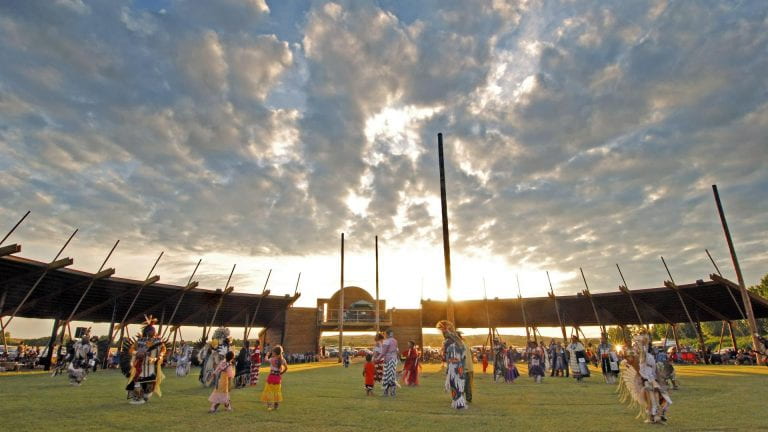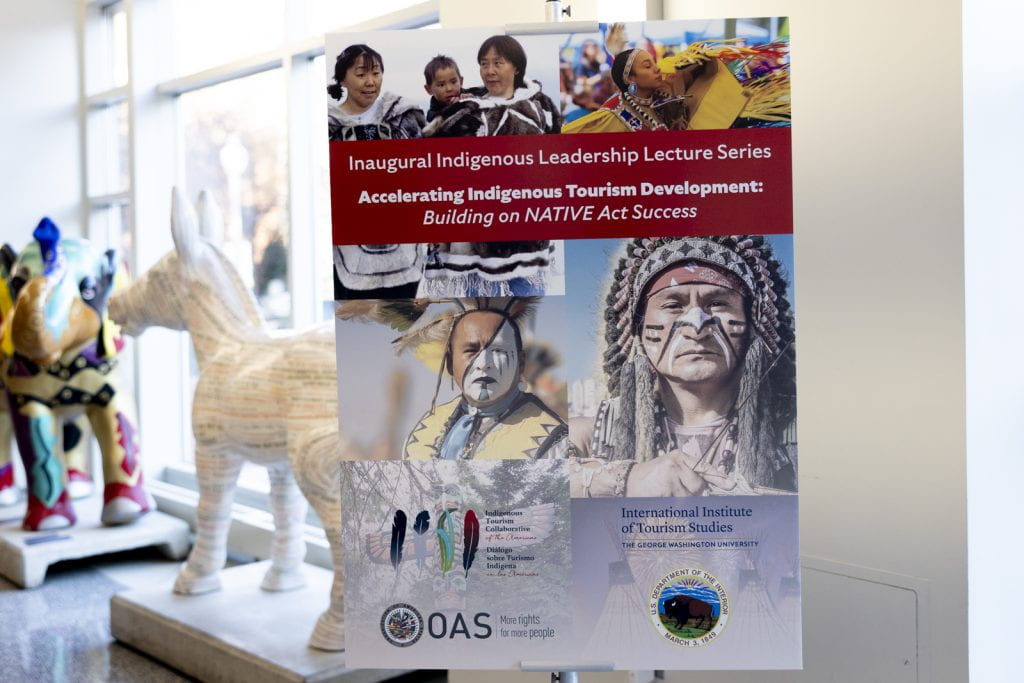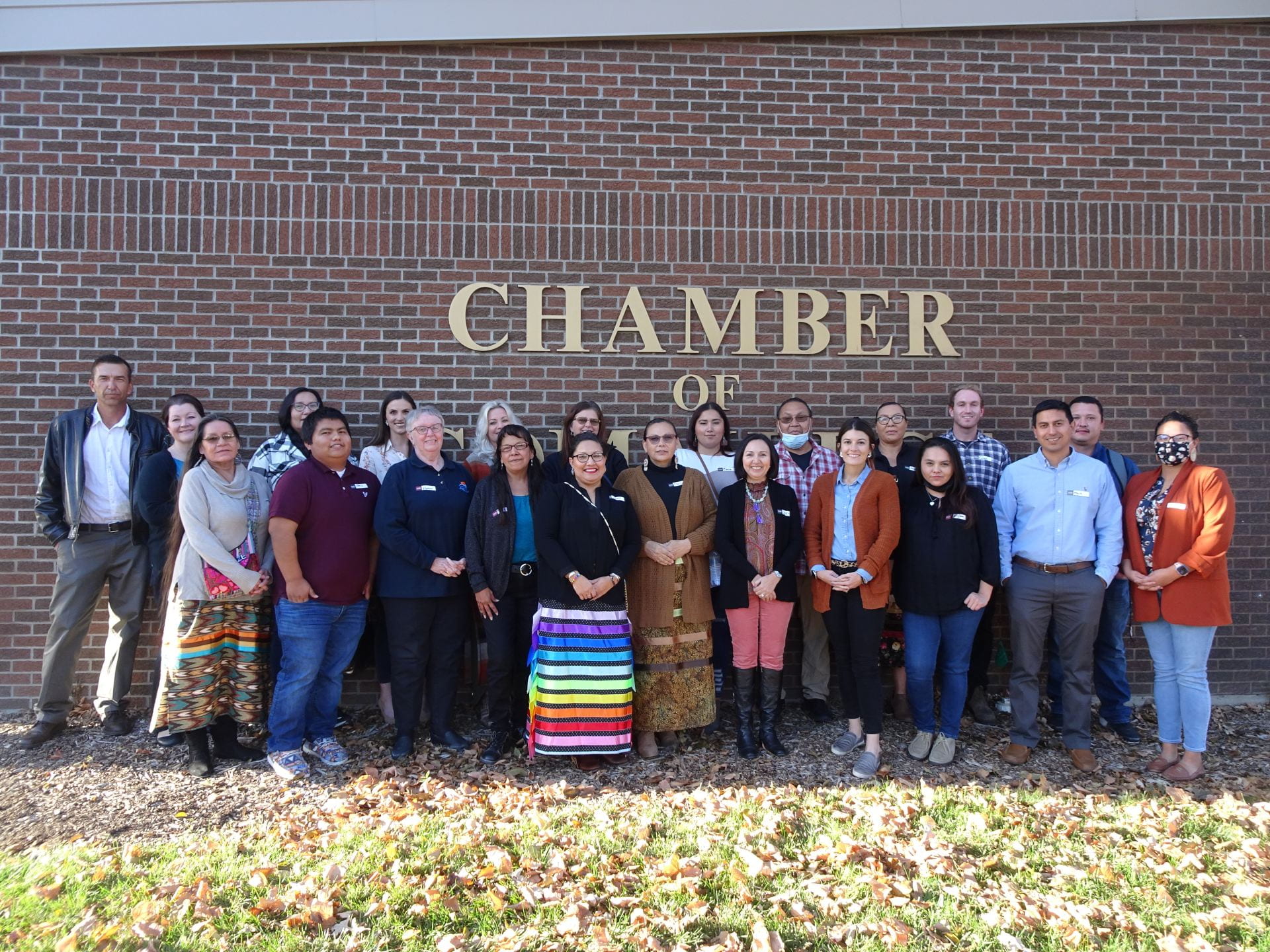The George Washington University International Institute of Tourism Studies has released a report with highlights from the December 12, 2023 First Annual Distinguished Indigenous Leaders Lecture Series co-hosted by the Indigenous Tourism Collaborative of the Americas. The in-person event was held at the Jack Morton Auditorium and live-streamed to an audience across the Americas.
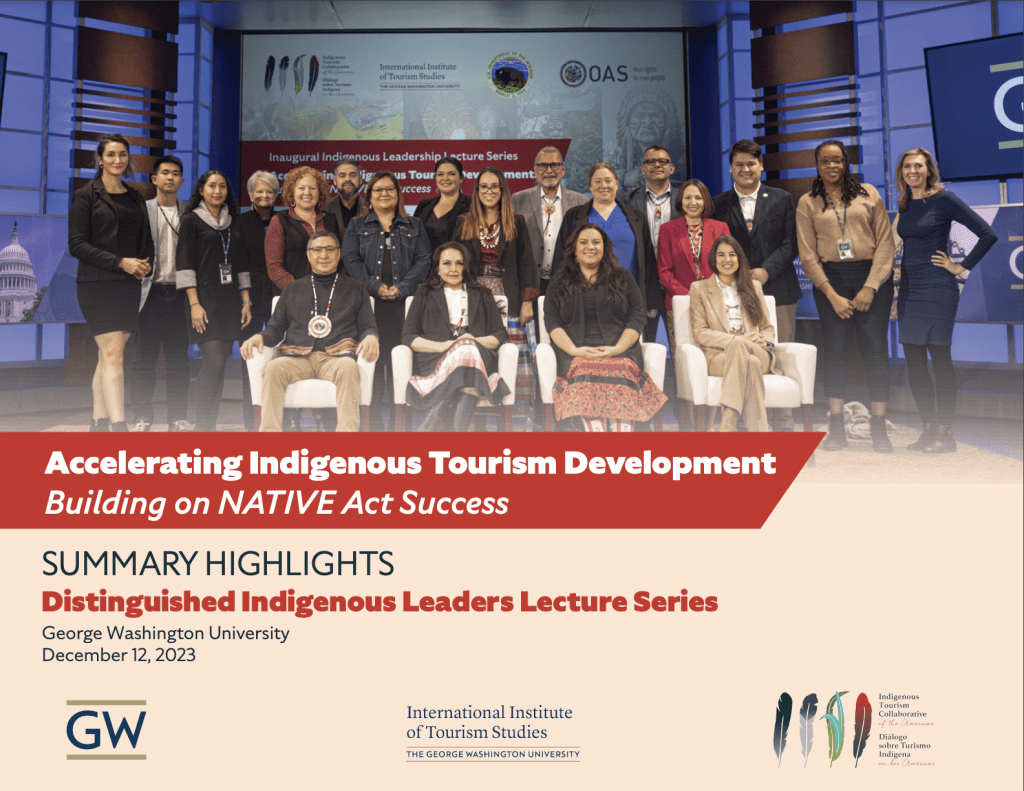
The Lecture Series' inaugural theme was Accelerating Indigenous Tourism Development – Building on NATIVE Act Success. Speakers emphasized domestic Indigenous opportunities created by the NATIVE Act (Public Law 114-221) and how Indigenous tourism progress throughout the Americas can be accelerated through collaboration and project co-creation between Indigenous communities and academic, government, private and nonprofit entities.
Kathy Baird, (Sicangu Lakota/Oneida), Chief Communications Officer of the Washington Post, contributed to the report, along with the three Indigenous keynote speakers who are currently serving the Biden Administration and headlined the event:
Wizipan Garriott, Principal Deputy Assistant Secretary of Indian Affairs, praised the progress of U.S. tribes in tourism and issued a call to action for enhanced U.S. federal agency adoption of the NATIVE Act, passed in 2016 and designed to bolster Native tourism efforts in the United States.
Shawn Deschane, Director of the Office of Native American Business Development in the Office of the Secretary of Commerce, described multiple agencies and programs of the Department of Commerce that can be tapped by U.S. tribes engaged in tourism.
Milo Booth, Director of Tribal Affairs in the Office of the Secretary of Transportation, urged the audience to take advantage of the massive RAISE Discretionary Grant program within the Department of Transportation.
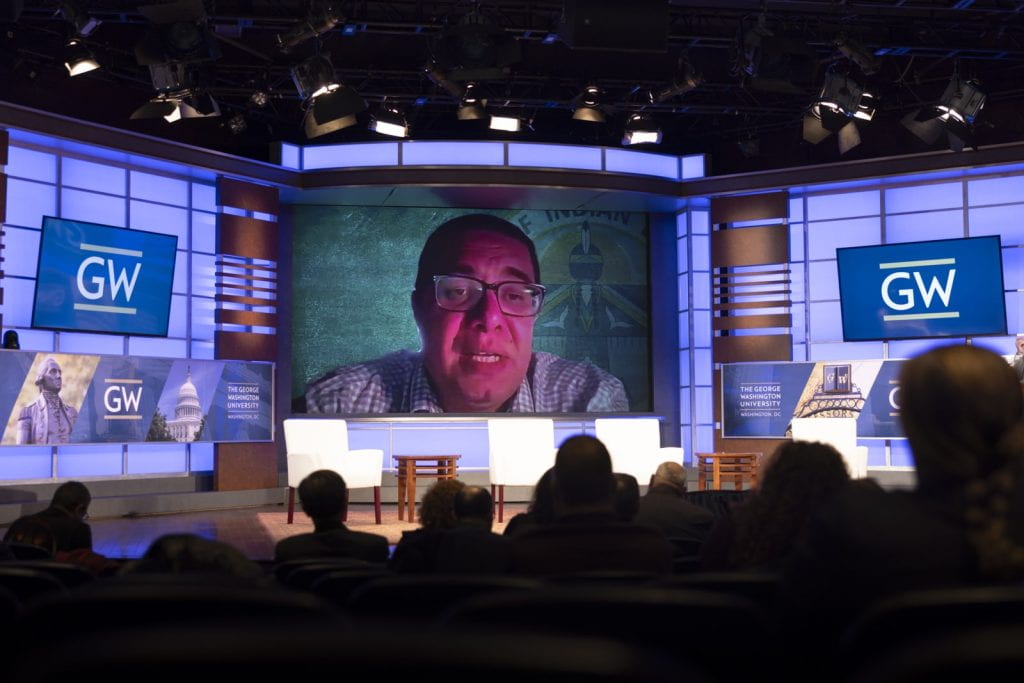
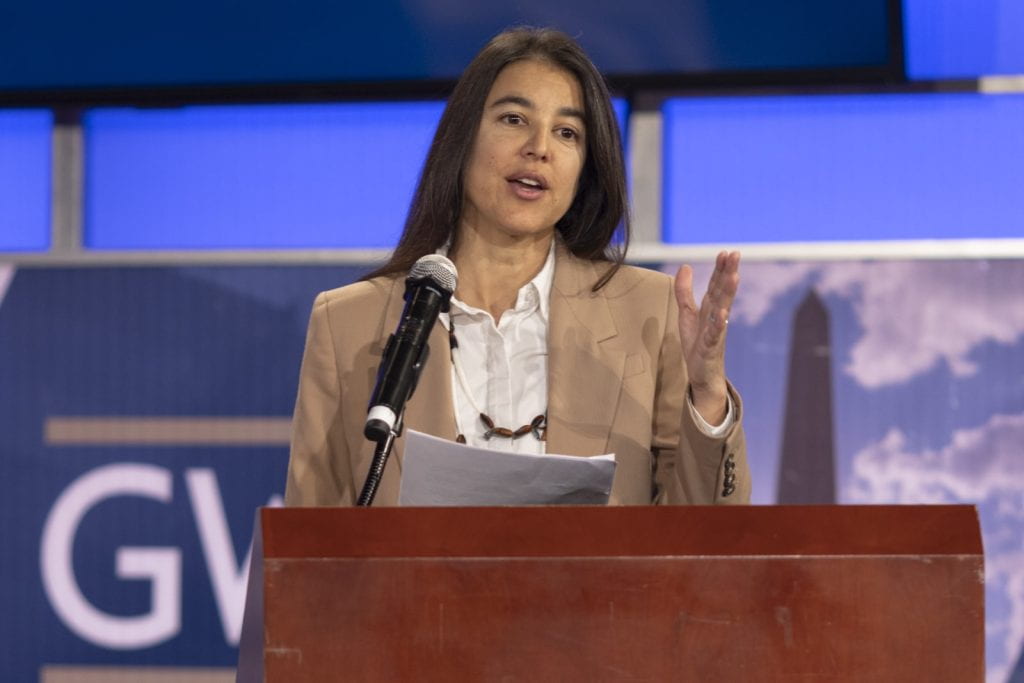
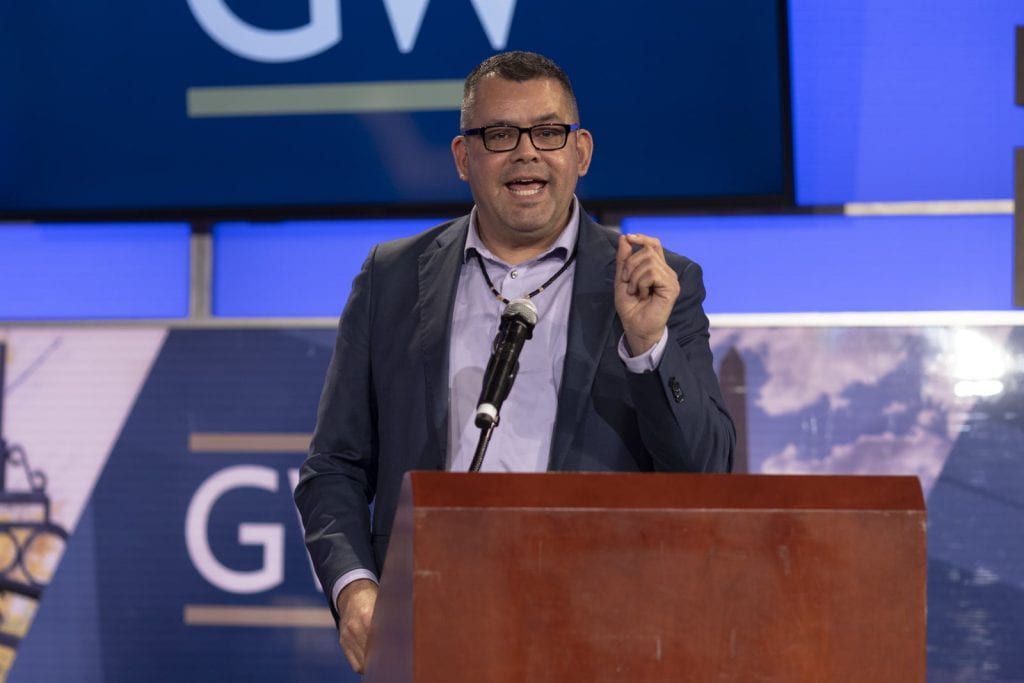
(L) Wizipan Little Elk Garriott, Principal Deputy Assistant Secretary of Indian Affairs, enrolled member of the Rosebud Sioux Tribe and chief advisor to Assistant Secretary of Indian Affairs Bryan Newland (M) Shawn Deschene, Director of the Office of Native American Business Development in the Office of the Secretary of Commerce and enrolled member of the Turtle Mountain Band of Chippewas in North Dakota (R) Milo Booth, Director of Tribal Affairs in the Office of the Secretary of Transportation and an Alaska Native from the Metlakatla Indian Community
Regional Success Stories, Federal Agency Programs, International Opportunities
A panel of regional Indigenous tourism leaders from North Dakota, South Dakota and Montana shared the success stories of regional tourism alliances and collaborations and offered advice on how Indigenous tourism success could be accelerated throughout the country.
In their remarks, this panel encouraged tribes to form statewide alliances that include government tourism and economic development offices, nonprofits and private enterprise, talked about how these alliances are attracting tour operators and funding, and emphasized the importance of outside facilitation and technical assistance in building a successful tourism alliance. The GW International Institute of Tourism Studies was praised for its facilitation of tourism strategic plans and its technical assistance in the North and South Dakota tourism alliances.
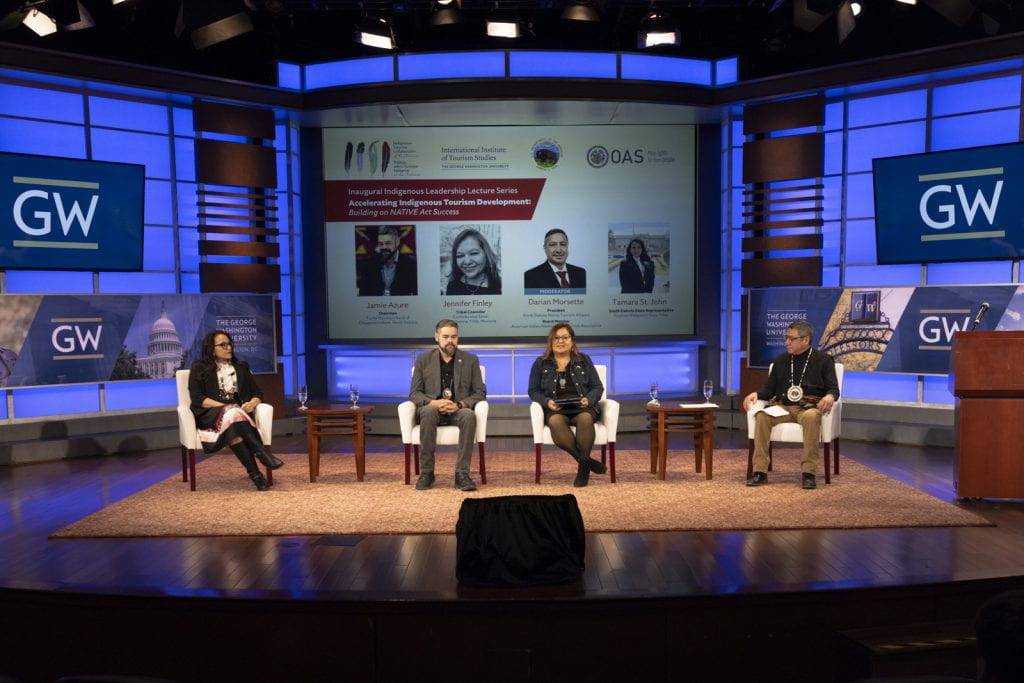
Government Participation in Indigenous Tourism Progress
A panel of federal agency leaders described advances in Native tourism made through NATIVE Act funding and programmatic assistance for Native tourism projects and research needs. They emphasized the recent involvement of the White House Council on Native American Affairs and encouraged additional federal agencies to employ the NATIVE Act mandates to accelerate Indigenous tourism progress.
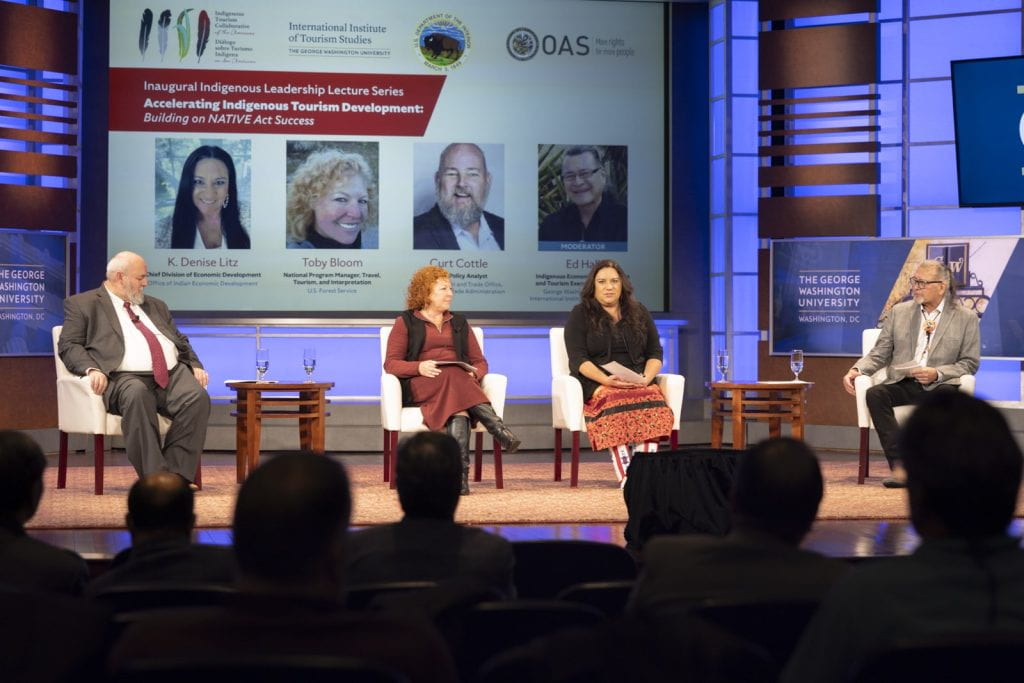
Opportunities and Resources for Indigenous Tourism in the Americas
An international panel of leaders, which included GW International Institute of Tourism Studies Executive Director Seleni Matus, emphasized progress being made in Indigenous tourism through established programs, new opportunities and available financial assistance, including the efforts of the US Agency for International Development (USAID) and the Inter-American Foundation. GW IITS encouraged Indigenous communities to participate in collaborations and alliances, seek technical assistance and employ immediately available resources such as the Indigenous Tourism Collaborative of the Americas e-Library.
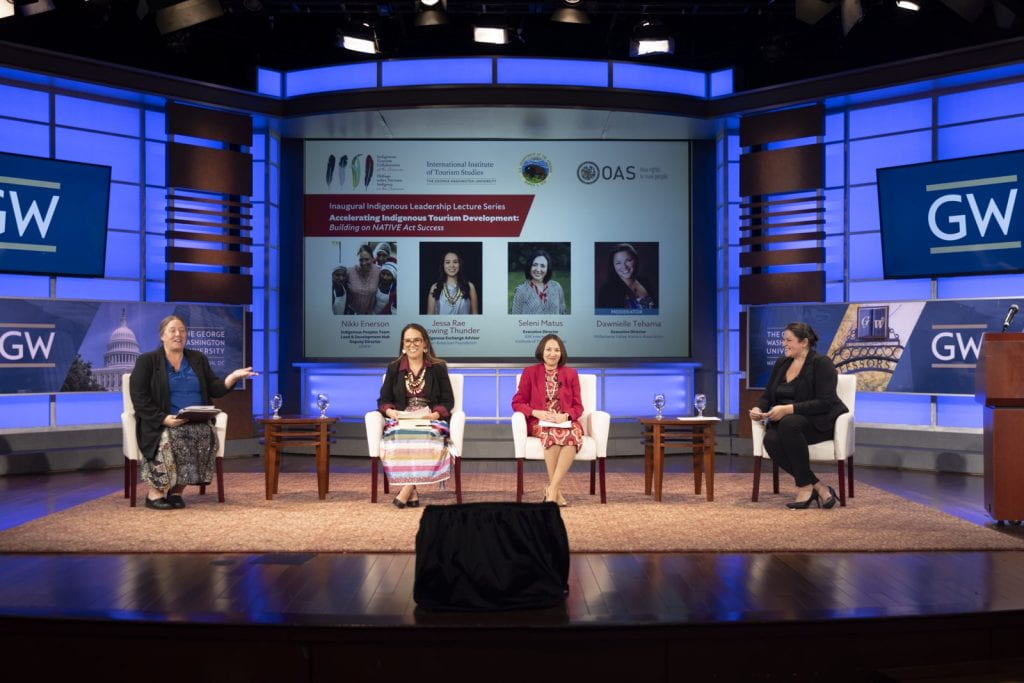
Co-Hosts of the New Lecture Series – ITCA and GW IITS
Indigenous Tourism Collaborative of the Americas (ITCA) is a hemispheric network of more than 100 Indigenous leaders, leading tourism organizations, and public and private industry champions who work together to support sustainable Indigenous tourism development across the American continents.
ITCA’s steering committee is composed of the Office of Indian Economic Development in the U.S. Department of the Interior, the Organization of American States and the George Washington University International Institute of Tourism Studies.
As a global leader in tourism education and research, the GW International Institute of Tourism Studies has guided businesses, communities, governments and nonprofits toward sustainability for more than thirty years. They advance critical industry issues through thought leadership, research, professional-level certificate programs, and courses and workshops in destination management and cultural heritage tourism.
The GW International Institute of Tourism Studies works with tribal communities to develop their tourism potential, helping them to take stock of and develop their assets, plan and build their capacity and promote their offerings. Areas of focus include tribal tourism governance, capacity building and product development.

